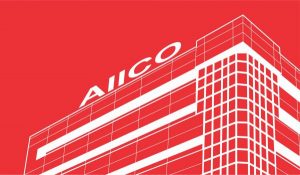Joy Agwunobi
AIICO Insurance Plc, one of Nigeria’s foremost insurance providers, has called for greater awareness and adoption of public liability insurance across the country, urging businesses and individuals particularly property owners whose premises are accessible to the public to take proactive steps in mitigating third-party risks.
This advocacy came during a recent radio programme, where specialists from AIICO engaged listeners on the importance of public liability insurance. The company emphasised that this form of coverage is crucial for entities that interact with members of the public, as it provides financial protection against legal claims arising from accidental injuries or property damage involving third parties.
Samuel Balogun, team lead, Downstream Underwriting at AIICO, stated “Public liability insurance is not just an optional add-on—it’s a fundamental safeguard for modern businesses.” He explained that in an environment where businesses constantly engage with customers, contractors, suppliers, and casual visitors, the risk of unforeseen incidents is ever-present. Having the appropriate insurance cover, he noted, ensures that businesses are not crippled by unexpected legal costs or compensation claims.
Balogun outlined the key provisions typically included in a public liability policy: coverage for accidental bodily injury sustained by a third party, accidental property damage, and the legal expenses associated with defending such claims. However, he explained that the policy does not extend to injuries suffered by the business’s employees, but falls under a different category of insurance.
“While public liability protects against harm to third parties, businesses must also consider employers’ liability insurance to address risks involving their staff. This form of coverage is specifically designed to handle claims related to workplace injuries or occupational diseases suffered by employees,” he explained.
Balogun further distinguished between the three major categories of liability insurance: public liability insurance, which protects against claims by non-employees such as customers or visitors; employer’s liability insurance, which covers employees for work-related injuries or illnesses; and professional indemnity insurance, which is essential for businesses that provide services or advice that could potentially result in client losses.
“Take, for instance, a customer slipping on a wet floor in a supermarket. Any legal claim arising from that incident—medical bills, damages, and court expenses—would be covered under public liability,” Balogun noted. “In contrast, if an employee is injured while handling equipment, that would be handled under employers’ liability.”
Professional indemnity, he added, comes into play when errors, omissions, or negligence in the delivery of professional services lead to financial loss or damage for clients. It is especially relevant for consultants, legal practitioners, architects, financial advisors, and similar professionals.
Similarly, Oluwaferanmi Orisabinone, team lead for multi-clients and financial institutions at AIICO, delved into the structural and financial mechanics of public liability insurance, stressing that the policy provides a financial cushion for individuals or organisations against liabilities incurred through accidents involving third parties during the normal course of business.
According to Orisabinone, two critical financial components define the extent of protection under a typical public liability policy namely the: the aggregate limit. She noted that this represents the maximum total amount the insurer will pay throughout the policy period, regardless of the number of claims while the occurrence limit is the maximum amount payable for any single incident or claim.
“Understanding these limits is key to choosing the right cover,” she said. “While the occurrence limit dictates how much will be paid for any one incident, the aggregate limit defines the insurer’s total exposure across multiple claims during the policy term.”
She further explained that the “insured” under the policy refers to the individual, business owner, or organisation that purchases the cover, and that it’s their responsibility to ensure their operational activities are adequately protected against liability risks.
AIICO’s sustained public education around liability insurance is part of its broader commitment to increasing insurance penetration and promoting a more risk-conscious culture in Nigeria’s business landscape.
As interactions between businesses and the public continue to grow in frequency and complexity, the company believes that public liability insurance will play a pivotal role in safeguarding enterprises against the escalating costs of litigation and compensation.









